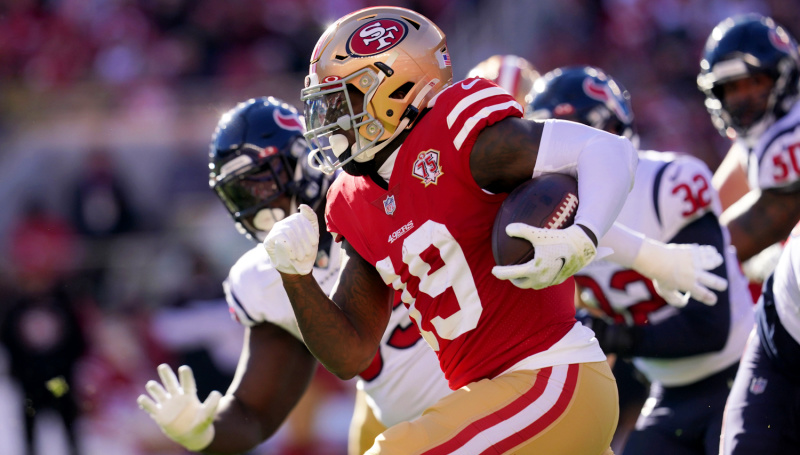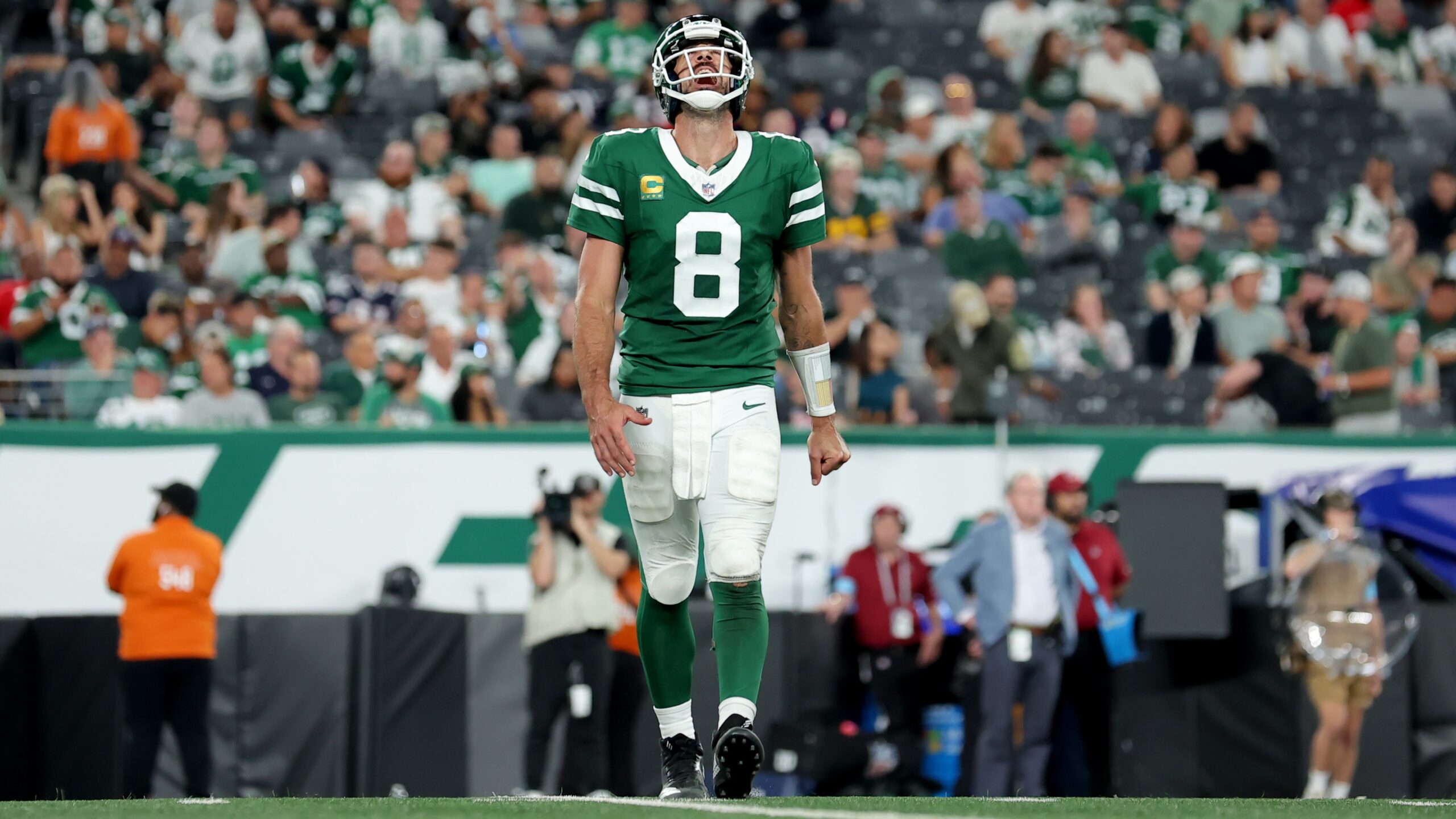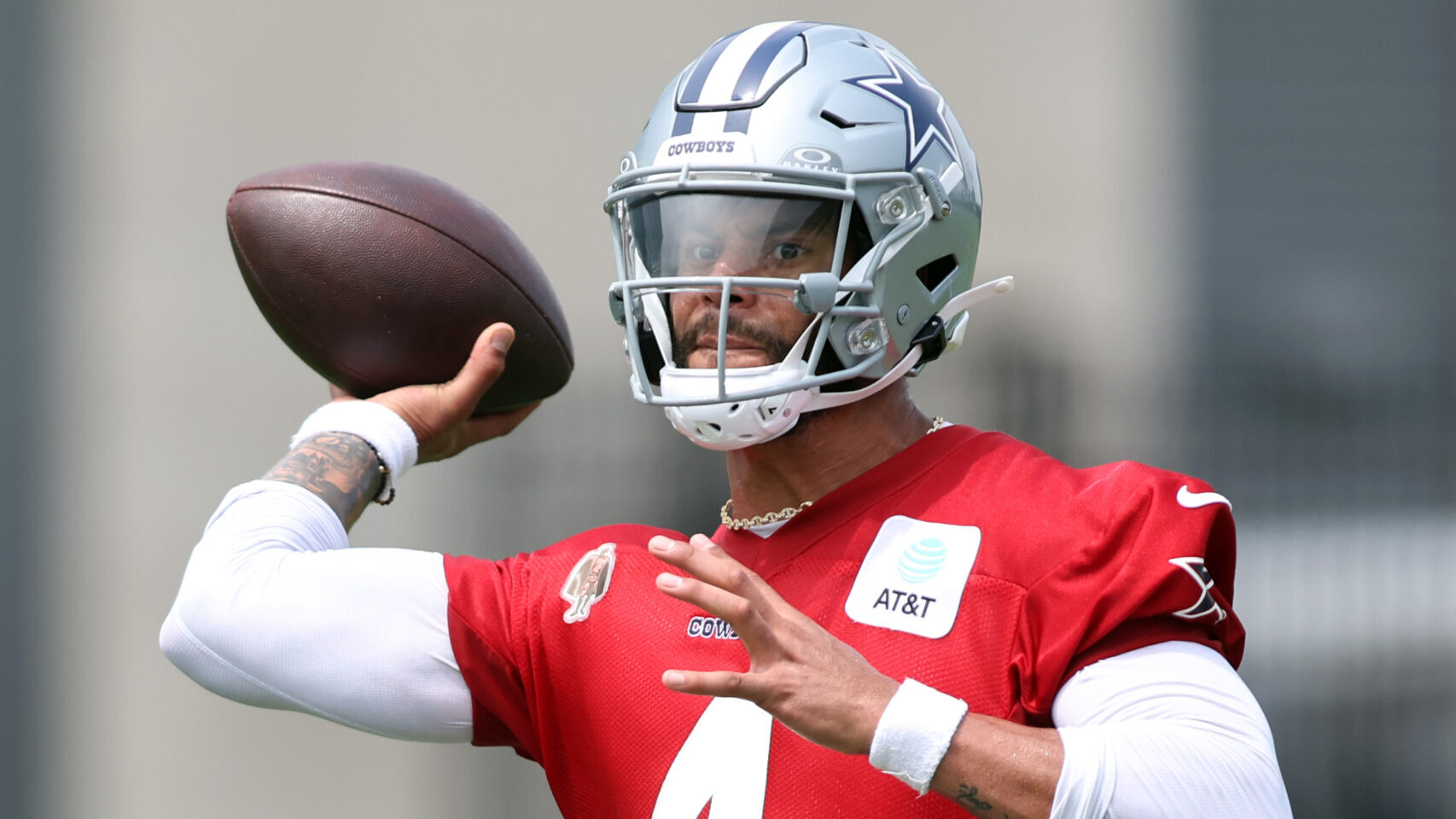Analysis
3/24/22
8 min read
Evaluation and Valuation: How Good is Deebo Samuel and How Much is He Really Worth?

Deebo Samuel is one of the most versatile offensive weapons the NFL has seen, and his upcoming contract will be a fascinating study as a result. Heading into the final season of his rookie deal, Samuel is extension eligible and retaining him will be a priority for San Francisco. To get a proper idea of what his next contract will look like, we looked at his game from a scouting perspective and used both quantitative and qualitative models to find an ideal valuation.
Scouting Report
- Strengths: Versatility, Physicality, Toughness, RAC, Vision, Balance, Competitiveness
- Weaknesses: Drops (focus), Route Precision/Sharpness
Bottom Line: Samuel is one of the most versatile players in the NFL today and arguably the most versatile WR in NFL history. He has shown the ability to perform and be highly productive not only as a receiver but also as a runner and returner. As a pure WR, Samuel is probably closer to a very good #2 than a true #1. But it’s extraordinarily difficult to examine Samuel through the standard WR lens, as he is the only WR in NFL history to accumulate 1,000-plus receiving yards along with at least 5 rushing TDs and 5 receiving TDs.
Samuel is one of the most dynamic players in the NFL with the ball in his hands, which is evident by his 780 yards after the catch (2nd in NFL among WRs in 2021), his 22 missed tackles forced after the catch (ranked 2nd), and his 36 explosive plays (ranked 5th). At the same time, however, he also ranked first in the NFL (WRs with 50+ targets) with 13 drops while placing fourth in drop percentage (13.68%)
Although he is very versatile, nearly all of his production stems from his physicality, toughness, and competitiveness — he ranks at the top of the league in these intangible categories. As for Samuel’s production, a good amount of it comes on spot screens and crossing routes where SF is able to get the ball into his hands quickly in space. This allows him to exhibit his greatest attributes. Over half (53.72%) of Samuel’s receiving yards come on in routes, crossing routes, and wide screens, with nearly 40% of his total receiving yards coming by way of play-action passes.
When we examine Samuel as a runner, we can really start to dig into his versatility.
While he was primarily utilized as a perimeter runner in the early part of the season, SF did incorporate more inside runs for Samuel as the season progressed. Samuel also showed the ability to be effective as both an inside and outside runner, displaying feel, vision, strength, and power. These traits separate Samuel from other receivers who have been used as runners. His 365 rushing yards rank in the top 10 all-time for single-season rushing yards by a WR, and his 8 TDs are the most by a WR in NFL history.
When considering his overall value for a club, any team that employs him will need to have a firm plan for how they will utilize Samuel both from a philosophical and functional standpoint. Despite his huge leap in production in 2021, Samuel has not yet developed the upper-level route running where he can be relied upon to consistently win his 1-on-1 matchups in this manner. This will be especially problematic if he begins to draw shadow coverage on a consistent basis. He has also displayed some inconsistencies catching the ball. Samuel is most dangerous with the ball in his hands and thus a team must continue to scheme new and creative ways to make this happen.
This raises the question: how does a team accurately gauge the monetary value of a player who has #1 WR production despite not having the traditional #1 WR skill set? Likewise, how does his ability to contribute not only as a runner, but a legitimate runner at the RB position, mitigate the absence of true #1 WR skills (route running, stature, and hands)?
Contract Evaluation
To determine Samuel’s worth on the open market, we looked at three different avenues of player valuation. The first two are both quantitative models — one of which is based on advanced metrics designed to determine Samuel’s true value regardless of what the WR positional market has dictated. The other model is derived from Samuel’s counting stats (yards and TDs) in his strikingly productive 2021 season. The third avenue we explored is a qualitative evaluation of Samuel’s market based on comparisons and what WRs have gotten recently in extensions.
Let’s start with the quantitative side...
True Value Model: $18.16M APY
To clarify, true value indicates what a player’s value should be based entirely on his on-field production. It is independent of the positional market valuation. This means that certain positions being overvalued (or undervalued) coheres with true value; it could even be implied by the model.
Wide Receiver is a valuable position, so true value won’t deviate too severely from the market. Prior to tearing his ACL, Chris Godwin’s $20M APY extension might have been deemed team-friendly by the model due to his immense production (especially in 2019). For Samuel, however, his true value is lower than what one might expect. The most valuable facet of his game is his receiving production. But coinciding with the scouting report above, he doesn’t produce at the level of a true #1 WR. His rushing adds to his value, but rushing production isn’t nearly as valuable as receiving, so it doesn’t move the needle significantly on his valuation.
A contract with a $18.16M APY would put Samuel just above Christian Kirk and Kenny Golladay. It’s safe to say though that he’s markedly better than both of those players.
Agent-Side Model: $21.86M APY
We’re calling this the agent-side model because using Samuel’s yards from scrimmage and total TDs from 2021 would be the strongest argument for his agent. Doing so would put him just shy of $22M APY and would make him the fourth highest paid WR in the NFL behind Davante Adams ($28M), DeAndre Hopkins ($27.25M), and Tyreek Hill ($25M). Samuel’s counting stats last season were incredible — 14 total TDs and 1,770 yards from scrimmage. He trailed only Cooper Kupp in both categories, and he was tied with Mike Evans for TDs.
Counting stats, however, certainly aren’t the best metric to ascertain a player’s value. Not all yards and TDs are created equal, and there are better stats to divide such credit alone with credit for each player involved. Yet, the agent ought to utilize them to present Samuel’s case. It’s clearly the best argument for him being paid close to the top of the market.
Qualitative Evaluation
Given his play style and uniqueness, it’s really hard to find a perfect comparison for Samuel. Percy Harvin is probably the closest comparison in terms of play style, but even he is not an ideal comp. Harvin signed an extension in 2013 for $12.8435M, which was 10.4% of the $123M cap that year. If Samuel were extended tomorrow and his APY were the same percentage of the cap as Percy’s, it would be $21.65M. That’s probably close to what his agent will target.
Looking at recent WR contracts, the market is exploding. Although it seems unlikely Samuel will get the $25M Tyreek Hill reportedly got from the Dolphins, eclipsing $20M seems probable. If he maintains similar levels of production, he’ll top Keenan Allen, Mike Williams, and Chris Godwin.
Franchise Tag
Samuel will be a UFA after the 2022 season, as this will be the fourth year of the 2019 second-round pick’s rookie contract. If the 49ers and Samuel don’t come to terms on an extension, the team has the option to Franchise Tag him. The question will be whether the team decides to tag him as a WR or as an RB. If it’s the latter, Samuel will surely file a grievance, and he’ll almost certainly win it. We would not recommend the team to tag him as an RB because it creates serious tension with the player and could make an extension untenable. The RB tag would, however, save them a projected $7.169M.
Interestingly, Samuel has called himself a wide-back, which seems to be a hybrid of the two positions. Will the 49ers try to use this against him if they have to utilize the tag next offseason?
Conclusion
Deebo Samuel is a very talented and unique player, but he’s ultimately a cross between an elite weapon and a specialized role player. Though his on-field play is probably worth between $18-$19M per season, we’d be surprised if he didn’t get at least $20M and likely closer to $21-$22M per year.






